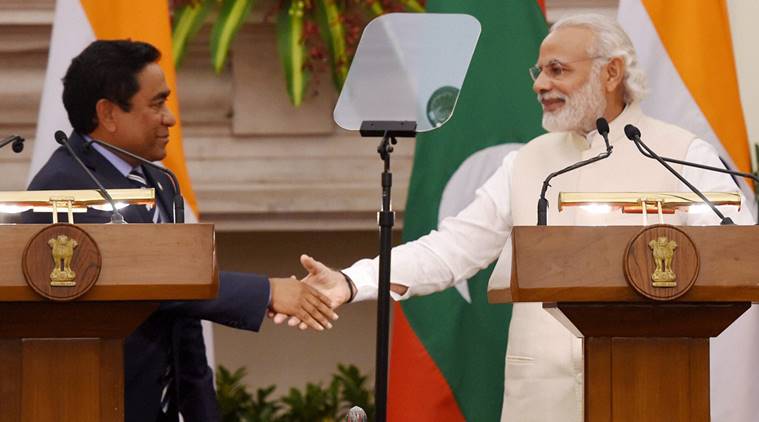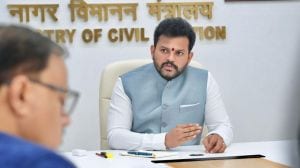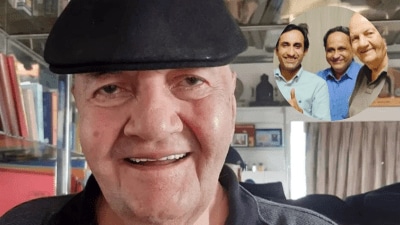A year after Prime Minister Narendra Modi cancelled his bilateral visit to Maldives due to the political turmoil in the island country, New Delhi and Male patched up its ties and signed a crucial action plan on defence cooperation on Monday. This was signed after the bilateral conversation between Prime Minister Narendra Modi and the visiting Maldives President Abdulla Yameen Abdul Gayoom on Monday.

WATCH | India-Maldives Sign Defence Cooperation Plan: Understanding The Significance
Officials said that the defence action plan is an important component of the India-Maldives bilateral relationship and the shared strategic and security interests of the two countries in the Indian Ocean region. “The Action Plan envisages an institutional mechanism at the level of the Defence Secretaries to further bilateral defence cooperation,” officials said.
This was one of the six agreements signed between the two countries, after Modi and Yameen held talks which continued over a working lunch. The pacts signed are in the field of tourism, taxation, conservation, SAARC satellite.
[related-post]
Stressing that Maldives’ stability and security is directly linked to the national interests of India, Modi said, “We are conscious of security needs of Maldives. President Yameen agreed that Maldives will be sensitive to our strategic and security interests. It is clear that the contours of India-Maldives relations are defined by our shared strategic, security, economic and developmental goals,” Modi said.
“The prompt implementation of a concrete action plan in the defence sector will strengthen our defence cooperation. Development of ports, continuous training, capacity building, supply of equipment and maritime surveillance will be its main elements,” Modi said.
Yameen said his country pursues an “India first” foreign policy and described it as most important
friend of Maldives. This was perceived by Delhi as a reassurance from the top leadership of Maldives, which is being actively wooed by the Chinese government and businesses.
Story continues below this ad
The PM also said that they are both aware of the growing dangers of terrorism and challenge of radicalism, and that the security agencies will strengthen information sharing, training and capacity building to deal with these challenges.
Yameen, on his part, said, “Maldives and India will work together to curb radicalism and cross border terrorism… security of Maldives is intimately linked to that of India.”
Referring to the political situation in Maldives, Modi said, “President Yameen also briefed me about political developments and institutional reforms in Maldives.” He added that India is a friend and will move forward with Maldives matching every step.
The Maldives President said that his visit was to thank India for it’s help “in protecting Maldives in the CMAG deliberations”. He added that his government giving primacy to rule of law in Maldives, he needed help from countries like India.
Story continues below this ad
Yameen said that he was looking forward to get continued support from India for protection of Maldives from any “punitive action” from the Commonwealth Ministerial Action Group over domestic political situation.
The Maldives President was candid enough to admit that the main reason for his visit was to thank
India for its role in helping the Maldives avoid action from the Commonwealth’s human rights and democracy oversight body. “The reason I visited India today is to express my appreciation for the very steadfast leadership India has shown in protecting Maldives in the CMAG deliberations.
“We look at India for continued support in preventing any unfair, any punitive action by the CMAG on the Maldives. It is indeed very sad for a small country like the Maldives, trying to engage in international diplomacy and trying to learn from the governance of these institutions, while smaller countries are unfairly punished,” he said. It may be noted that Foreign Secretary S Jaishankar is part of the CMAG and Male is extremely happy at his role.
“Maldives pursues India-first foreign policy…we have completed 51 years of diplomatic relations this year. There is no reason, why we should disappoint each other,” he added, stressing on dealing with each other with “mutual respect” and respecting the “territorial sovereignty”.
Story continues below this ad
Modi, who said that Yameen’s visit was like a friend coming to India, underlined cooperation in health, disaster relief, tourism, space and culture.
India is ready to partner Maldives in its ambitious iHaven project and UTH projects, PM said. iHaven is one of the most important projects in Yameen’s economic agenda, and is being developed under the new laws of the Special Economic Zone (SEZ). The project has six main goals, including developing an airport, a harbour, bunkering services, real estate, shopping malls, and resorts in the atoll.
Yameen reiterated his invitation to Modi for a bilateral visit, and said that he looked forward to welcome him at a time of his “choosing”.
External Affairs minister Sushma Swaraj called on Yameen earlier in the day, while President Pranab Mukherjee met him later and assured him that New Delhi will continue to extend all support for strengthening of democratic institutions in the island country.

 Prime Minister Narendra Modi shakes hands with President of Maldives Abdulla Yameen Abdul Gayoom at their Joint Press Statement after their meeting at Hyderabad house in New Delhi on Monday. (Source: PTI)
Prime Minister Narendra Modi shakes hands with President of Maldives Abdulla Yameen Abdul Gayoom at their Joint Press Statement after their meeting at Hyderabad house in New Delhi on Monday. (Source: PTI)






